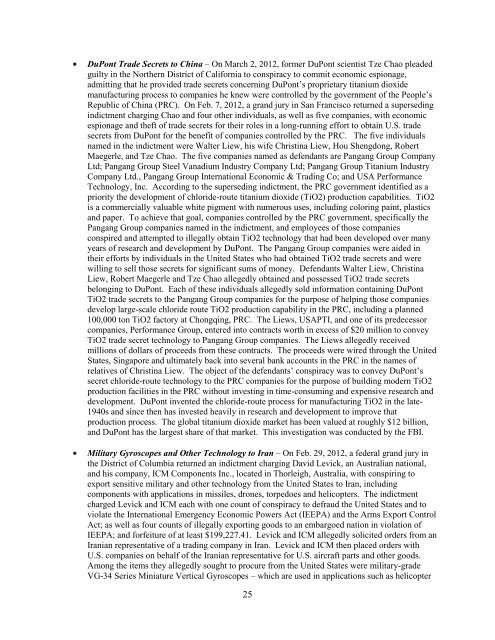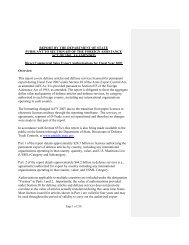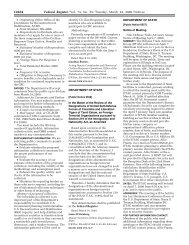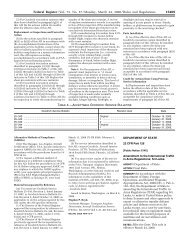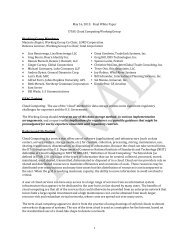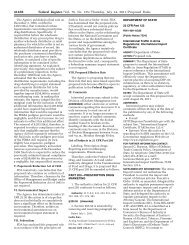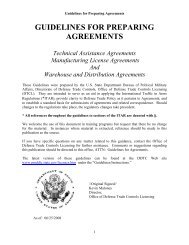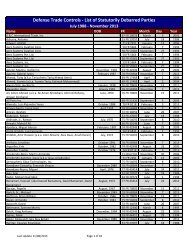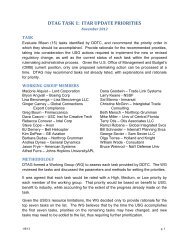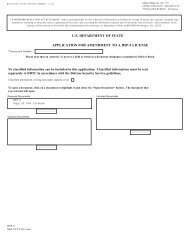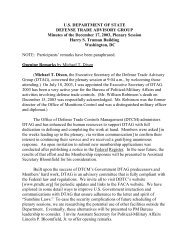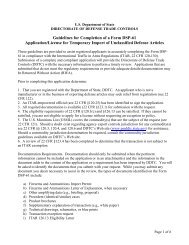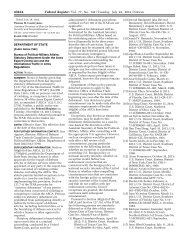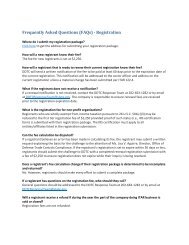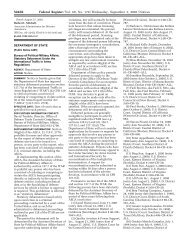Major Export Enforcement Cases - Directorate of Defense Trade ...
Major Export Enforcement Cases - Directorate of Defense Trade ...
Major Export Enforcement Cases - Directorate of Defense Trade ...
Create successful ePaper yourself
Turn your PDF publications into a flip-book with our unique Google optimized e-Paper software.
DuPont <strong>Trade</strong> Secrets to China – On March 2, 2012, former DuPont scientist Tze Chao pleaded<br />
guilty in the Northern District <strong>of</strong> California to conspiracy to commit economic espionage,<br />
admitting that he provided trade secrets concerning DuPont’s proprietary titanium dioxide<br />
manufacturing process to companies he knew were controlled by the government <strong>of</strong> the People’s<br />
Republic <strong>of</strong> China (PRC). On Feb. 7, 2012, a grand jury in San Francisco returned a superseding<br />
indictment charging Chao and four other individuals, as well as five companies, with economic<br />
espionage and theft <strong>of</strong> trade secrets for their roles in a long-running effort to obtain U.S. trade<br />
secrets from DuPont for the benefit <strong>of</strong> companies controlled by the PRC. The five individuals<br />
named in the indictment were Walter Liew, his wife Christina Liew, Hou Shengdong, Robert<br />
Maegerle, and Tze Chao. The five companies named as defendants are Pangang Group Company<br />
Ltd; Pangang Group Steel Vanadium Industry Company Ltd; Pangang Group Titanium Industry<br />
Company Ltd., Pangang Group International Economic & Trading Co; and USA Performance<br />
Technology, Inc. According to the superseding indictment, the PRC government identified as a<br />
priority the development <strong>of</strong> chloride-route titanium dioxide (TiO2) production capabilities. TiO2<br />
is a commercially valuable white pigment with numerous uses, including coloring paint, plastics<br />
and paper. To achieve that goal, companies controlled by the PRC government, specifically the<br />
Pangang Group companies named in the indictment, and employees <strong>of</strong> those companies<br />
conspired and attempted to illegally obtain TiO2 technology that had been developed over many<br />
years <strong>of</strong> research and development by DuPont. The Pangang Group companies were aided in<br />
their efforts by individuals in the United States who had obtained TiO2 trade secrets and were<br />
willing to sell those secrets for significant sums <strong>of</strong> money. Defendants Walter Liew, Christina<br />
Liew, Robert Maegerle and Tze Chao allegedly obtained and possessed TiO2 trade secrets<br />
belonging to DuPont. Each <strong>of</strong> these individuals allegedly sold information containing DuPont<br />
TiO2 trade secrets to the Pangang Group companies for the purpose <strong>of</strong> helping those companies<br />
develop large-scale chloride route TiO2 production capability in the PRC, including a planned<br />
100,000 ton TiO2 factory at Chongqing, PRC. The Liews, USAPTI, and one <strong>of</strong> its predecessor<br />
companies, Performance Group, entered into contracts worth in excess <strong>of</strong> $20 million to convey<br />
TiO2 trade secret technology to Pangang Group companies. The Liews allegedly received<br />
millions <strong>of</strong> dollars <strong>of</strong> proceeds from these contracts. The proceeds were wired through the United<br />
States, Singapore and ultimately back into several bank accounts in the PRC in the names <strong>of</strong><br />
relatives <strong>of</strong> Christina Liew. The object <strong>of</strong> the defendants’ conspiracy was to convey DuPont’s<br />
secret chloride-route technology to the PRC companies for the purpose <strong>of</strong> building modern TiO2<br />
production facilities in the PRC without investing in time-consuming and expensive research and<br />
development. DuPont invented the chloride-route process for manufacturing TiO2 in the late-<br />
1940s and since then has invested heavily in research and development to improve that<br />
production process. The global titanium dioxide market has been valued at roughly $12 billion,<br />
and DuPont has the largest share <strong>of</strong> that market. This investigation was conducted by the FBI.<br />
Military Gyroscopes and Other Technology to Iran – On Feb. 29, 2012, a federal grand jury in<br />
the District <strong>of</strong> Columbia returned an indictment charging David Levick, an Australian national,<br />
and his company, ICM Components Inc., located in Thorleigh, Australia, with conspiring to<br />
export sensitive military and other technology from the United States to Iran, including<br />
components with applications in missiles, drones, torpedoes and helicopters. The indictment<br />
charged Levick and ICM each with one count <strong>of</strong> conspiracy to defraud the United States and to<br />
violate the International Emergency Economic Powers Act (IEEPA) and the Arms <strong>Export</strong> Control<br />
Act; as well as four counts <strong>of</strong> illegally exporting goods to an embargoed nation in violation <strong>of</strong><br />
IEEPA; and forfeiture <strong>of</strong> at least $199,227.41. Levick and ICM allegedly solicited orders from an<br />
Iranian representative <strong>of</strong> a trading company in Iran. Levick and ICM then placed orders with<br />
U.S. companies on behalf <strong>of</strong> the Iranian representative for U.S. aircraft parts and other goods.<br />
Among the items they allegedly sought to procure from the United States were military-grade<br />
VG-34 Series Miniature Vertical Gyroscopes – which are used in applications such as helicopter<br />
25


